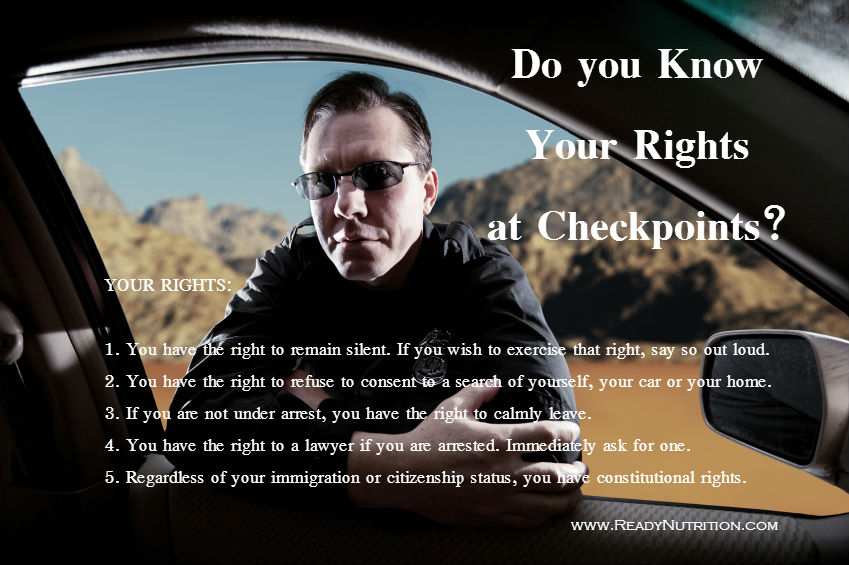 A majority of our society essentially walks around without knowing or actively exercising their rights. In fact, some do not even know what their rights are or why they are so important. Moreover, they would rather waive their freedoms afforded in this country at the first signs of a problem. One example of this is during a manhunt for the Boston Marathon bombing suspects, police and federal agents spent the day storming people’s homes and performing illegal searches.
A majority of our society essentially walks around without knowing or actively exercising their rights. In fact, some do not even know what their rights are or why they are so important. Moreover, they would rather waive their freedoms afforded in this country at the first signs of a problem. One example of this is during a manhunt for the Boston Marathon bombing suspects, police and federal agents spent the day storming people’s homes and performing illegal searches.
In the Constitution, the word “inalienable” means unable to be taken away from or given away by a possessor. That means these are natural rights are not contingent upon the laws, customs, or beliefs of any particular culture or government, and therefore ours for life. Many of us know this, but still our rights as citizens of the United States are violated by the police. For instance, we all want to cooperate and accommodate police officers when they ask us questions. However, some of those questions are not meant to be friendly, but to gain knowledge on you. While you are cooperating with the police officer and putting forth all of this information about yourself, you are providing evidence against yourself that they can use if need be. Remember? Everything you say and do, can be used against you. In this case, it’s best to remain silent.
In Voices of Liberty, reporter Britt Hysen talks to Nina Hodjat, an attorney for DUI Partners. The two discuss how to speak to officers and exercise your rights respectfully at police checkpoints. Nina states that it is best to stay calm and be respectful when exercising your rights. She states that “human element factors come into play in situations such as this. If you are respectful to the police officers, the situation should not escalate. If you are being aggressive, chances are, they will respond to that and become aggressive back. Just stay calm.”
Know Your Rights
Know that you can invoke your rights. This downloadable card lists your rights and can be used when talking with police officers. When you are going through checkpoints, always be respectful use these tips when exercising your rights:
- Stay calm. Don’t run. Don’t argue, resist or obstruct the police, even if you are innocent or police are violating your rights.
- Ask if you are free to leave. If the officer says yes, calmly and silently walk away. If you are under arrest, you have a right to know why.
- You have the right to remain silent and cannot be punished for refusing to answer questions. If you wish to remain silent, tell the officer out loud. In some states, you must give your name if asked to identify yourself.
- You do not have to consent to a search of yourself or your belongings, but police may “pat down” your clothing if they suspect a weapon. You should not physically resist, but you have the right to refuse consent for any further search. If you do consent, it can affect you later in court.
- Be smart and know your rights.
Source: www.aclu.org
Know Your Rights: Police Checkpoints
In an effort to further inform the public, feel free to post this on your social media pages to get the word out on how vital it is for all of us to know our rights. The more we exercise our rights, the more aware we will be when they are being abused.
What advice can you give about protecting your freedoms?
This article was originally published at Ready Nutrition™ on December 5th, 2014







